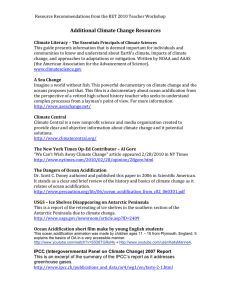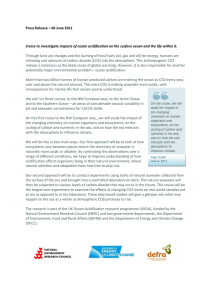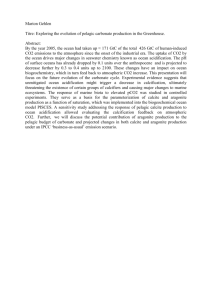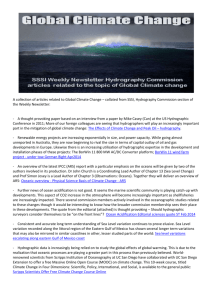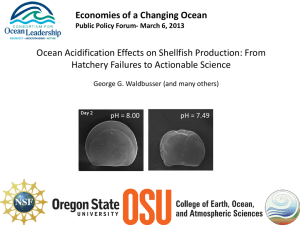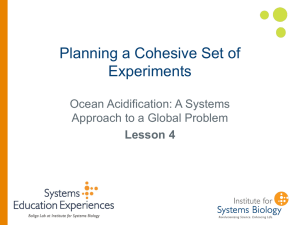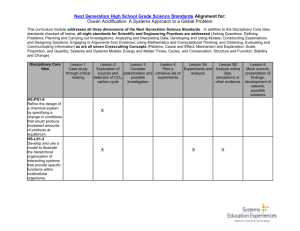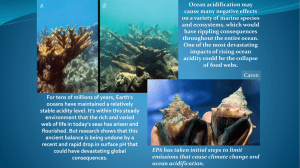ocean acidification - geological evidence, present conditions and
advertisement
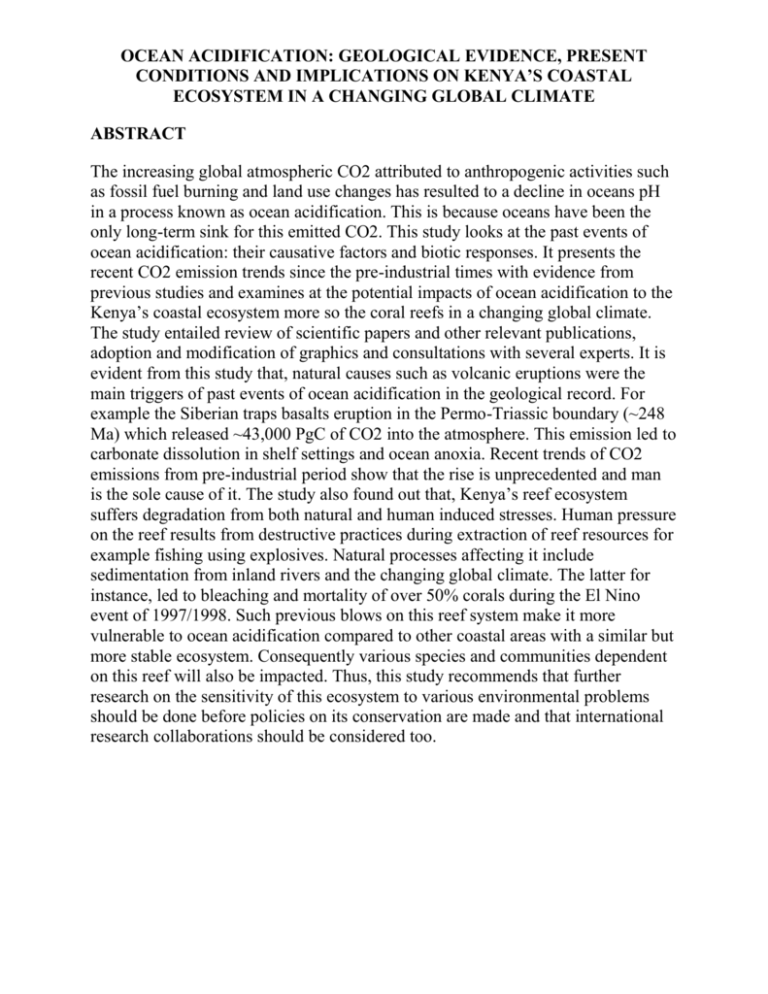
OCEAN ACIDIFICATION: GEOLOGICAL EVIDENCE, PRESENT CONDITIONS AND IMPLICATIONS ON KENYA’S COASTAL ECOSYSTEM IN A CHANGING GLOBAL CLIMATE ABSTRACT The increasing global atmospheric CO2 attributed to anthropogenic activities such as fossil fuel burning and land use changes has resulted to a decline in oceans pH in a process known as ocean acidification. This is because oceans have been the only long-term sink for this emitted CO2. This study looks at the past events of ocean acidification: their causative factors and biotic responses. It presents the recent CO2 emission trends since the pre-industrial times with evidence from previous studies and examines at the potential impacts of ocean acidification to the Kenya’s coastal ecosystem more so the coral reefs in a changing global climate. The study entailed review of scientific papers and other relevant publications, adoption and modification of graphics and consultations with several experts. It is evident from this study that, natural causes such as volcanic eruptions were the main triggers of past events of ocean acidification in the geological record. For example the Siberian traps basalts eruption in the Permo-Triassic boundary (~248 Ma) which released ~43,000 PgC of CO2 into the atmosphere. This emission led to carbonate dissolution in shelf settings and ocean anoxia. Recent trends of CO2 emissions from pre-industrial period show that the rise is unprecedented and man is the sole cause of it. The study also found out that, Kenya’s reef ecosystem suffers degradation from both natural and human induced stresses. Human pressure on the reef results from destructive practices during extraction of reef resources for example fishing using explosives. Natural processes affecting it include sedimentation from inland rivers and the changing global climate. The latter for instance, led to bleaching and mortality of over 50% corals during the El Nino event of 1997/1998. Such previous blows on this reef system make it more vulnerable to ocean acidification compared to other coastal areas with a similar but more stable ecosystem. Consequently various species and communities dependent on this reef will also be impacted. Thus, this study recommends that further research on the sensitivity of this ecosystem to various environmental problems should be done before policies on its conservation are made and that international research collaborations should be considered too.
